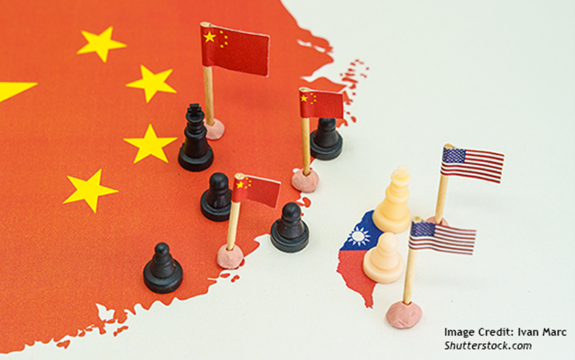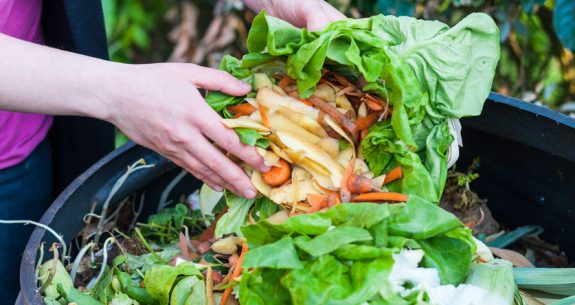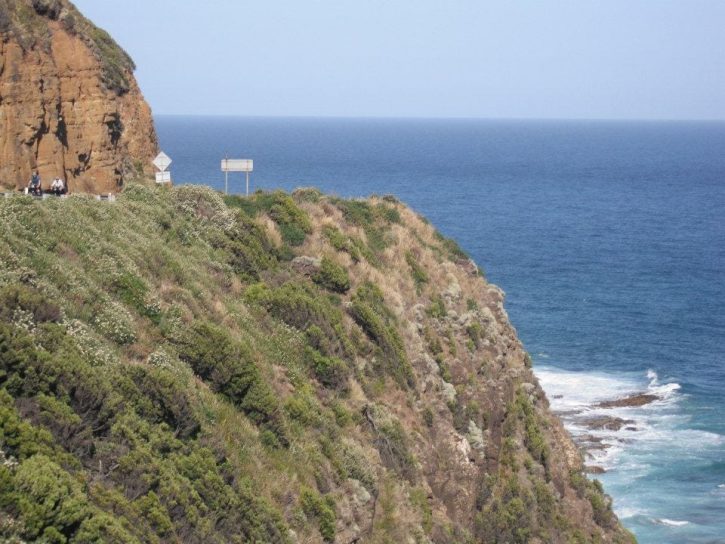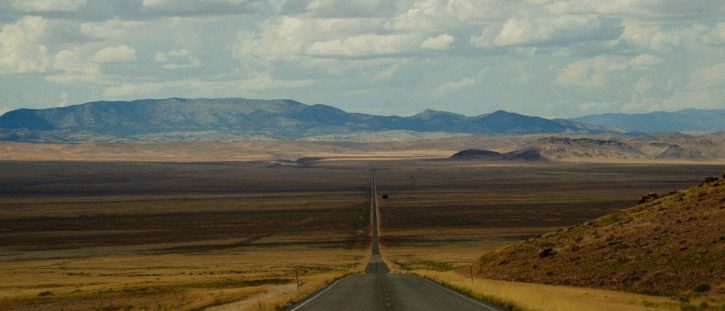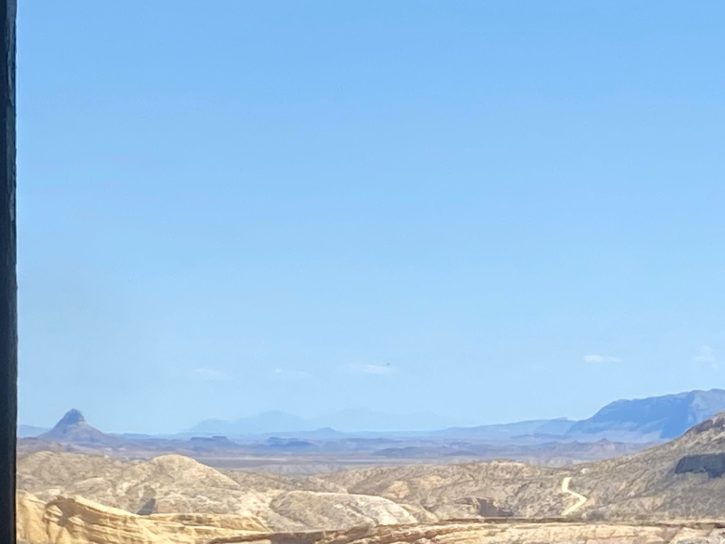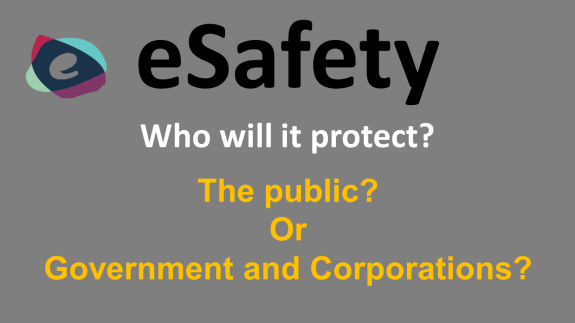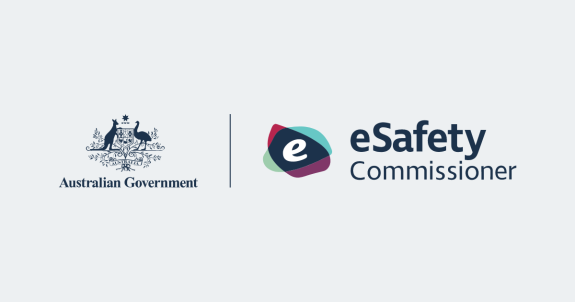By Denis Hay
Description:
Discover how Australia can be a role model for world peace, utilizing currency sovereignty to lead global disarmament initiatives effectively.
The Call for World Peace
In a world marred by conflict and division, the pursuit of world peace is still both a paramount goal and a formidable challenge. As global tensions escalate and the spectre of conflict looms large, the necessity for peace has never been more critical. Australia, with its historical commitment to peace and stability, is uniquely positioned to lead these efforts on the global stage.
The idea of world peace transcends mere diplomatic negotiations; it is about fundamentally reshaping international relations. This transformation involves a shift from competition to cooperation, from conflict to dialogue, and from suspicion to trust. With its diplomatic prowess and proven track record in peacekeeping, Australia can act as a role model, advocating for and implementing strategies that promote peaceful coexistence and global cooperation.
Given the complexity of today’s global conflicts, coupled with the destructive potential of modern warfare, the insanity and futility of war are clearer than ever. This context sets the stage for a comprehensive exploration of how Australia can not only contribute to but also spearhead efforts towards global demilitarization and the fostering of an enduring peace. This pursuit is not just about avoiding conflict but about actively building a framework within which peace can flourish.
In embracing this role, Australia could lead by example, showing the world that peace is not only necessary but achievable through concerted effort and unwavering commitment. The journey toward global peace starts with recognizing the deep interconnectedness of our modern world and the shared benefits that peace brings to all humanity.
The Insanity and Futility of War
War, by its nature, is both devastating and destructive, affecting not just the immediate combatants but also the broader society, environment, and global stability for generations. Historical examples and personal stories vividly illustrate these impacts, underscoring the urgent need for a global shift towards peace and disarmament.
Historical Costs of Conflict
1. World War I and II: These global conflicts reshaped the world, costing millions of lives and altering the political landscape of nearly every continent. World War II alone resulted in an estimated 70-85 million fatalities, which constituted about 3% of the 1940 world population. The environmental destruction was immense, with bombings and military manoeuvres destroying ecosystems, polluting rivers, and devastating entire cities.
2. Vietnam War: Lasting from 1955 to 1975, this conflict not only caused the death and displacement of millions but also had severe environmental impacts. The U.S. military’s use of Agent Orange led to massive deforestation and long-term genetic damage, affecting generations of Vietnamese people and devastating biodiversity in the region.
3. The Chernobyl Disaster (1986): Although not a war event, the Chernobyl nuclear disaster highlights the potential catastrophic consequences of military-grade nuclear technology when things go awry. The environmental contamination rendered an entire region uninhabitable and caused numerous long-term health issues across Europe.
Personal Stories from Conflicts
1. Siege of Sarajevo (1992-1996): Through personal accounts from survivors like Zlata Filipović, who penned her experiences in Zlata’s Diary, the world saw the horrors of the longest siege in modern warfare. Civilians endured constant shelling and sniper attacks, leading to profound psychological and physical scars.
2. Syrian Civil War: Starting in 2011, this ongoing conflict has led to more than 500,000 deaths and displaced millions. Personal stories, such as those documented by Syrian civilians and refugees, paint a bleak picture of daily life under constant threat of bombings, with destroyed homes and lost family members. The environmental toll is also significant, with damaged infrastructure leading to water shortages and pollution.
3. Rwandan Genocide (1994): Over approximately 100 days, an estimated 800,000 people were slaughtered based on ethnic divisions. Personal narratives from survivors highlight the brutal nature of the conflict and its aftermath, including a society struggling to reconcile and rebuild itself amidst the deep scars left behind.
These examples illustrate not only the immediate and obvious costs of war but also the long-term, often less visible consequences. The loss of human life, the destruction of infrastructure, and the environmental degradation are profound, demonstrating the insanity and futility of war. The drive toward world peace is not just moral but essential for the sustainability of humanity and the planet. This historical perspective and the deeply personal stories of those affected emphasize the need for a global commitment to disarmament and a reinvigoration of diplomatic efforts to resolve conflicts peacefully.
Modern Examples of Military Failures
In recent decades, many military interventions touted as solutions to complex conflicts have not only failed to achieve their goals but have often exacerbated the problems they aimed to solve. These modern examples underline the inefficacy of military force in securing lasting peace and the critical need for alternative, non-violent approaches.
Iraq War (2003-2011)
The 2003 invasion of Iraq by the United States and its allies was initially intended to eliminate weapons of mass destruction and reduce terrorism threats. However, no such weapons were found, and the long-term effects included the destabilization of the region, the rise of extremist groups like ISIS, and a devastating humanitarian crisis. The war resulted in hundreds of thousands of civilian deaths and displaced millions, creating long-term instability in the Middle East. The failure to set up a stable, democratic government as promised underscores the limitations and dangers of using military force to impose political solutions.
Afghanistan Conflict (2001-2021)
The U.S.-led invasion of Afghanistan aimed to dismantle al-Qaeda and remove the Taliban from power to create a stable democratic state. Despite twenty years of military engagement, the longest in U.S. history, the results were deeply disappointing. The Taliban regained control shortly after the withdrawal of foreign troops, illustrating the transient effectiveness of military intervention without robust, sustainable, and culturally informed political structures. The enduring conflict has led to widespread suffering, with thousands of civilian casualties and millions displaced, highlighting the need for comprehensive diplomatic and developmental strategies rather than solely military ones.
Libyan Civil War (2011-present)
Following NATO’s military intervention in 2011, which helped overthrow dictator Muammar Gaddafi, Libya plunged into chaos and civil war. The intervention, while initially successful in its goal to assist in toppling the regime, failed to consider the aftermath and the country’s political future. This oversight led to power vacuums that were quickly filled by competing militant groups, resulting in ongoing violence and instability. The Libyan example is a stark reminder of the consequences of military intervention that lacks a clear, workable plan for post-conflict governance.
Syrian Civil War (2011-present)
International military involvement in Syria, including efforts by the United States, Russia, and other regional powers, has not only failed to bring an end to the conflict but has often worsened the humanitarian situation. Military strikes and support to various factions have complicated the war, making peaceful resolutions more challenging and leading to one of the worst humanitarian crises of the 21st century. This conflict proves the complexity of civil wars involving multiple factions and external actors, where military interventions without unified international strategies and respect for local dynamics prove counterproductive.
These modern examples of military failures dramatically illustrate the limitations of force to achieve peace and security. They highlight the urgent need for a global recommitment to diplomacy, conflict prevention, peacebuilding, and sustainable development as more effective and humane alternatives to warfare. These strategies not only address the root causes of conflicts but also promote long-term stability and resilience, proving far more effective in achieving genuine peace.
Australia’s Peacekeeping Legacy
Australia has a commendable history of contributing to international peacekeeping, which highlights its commitment to global stability and the resolution of conflicts through non-violent means. This legacy is a testament to Australia’s role on the world stage as a proponent of peace and cooperation.
Contributions to UN Missions
Australia’s involvement in United Nations peacekeeping operations began in 1947, with its participation in the military observer group in Indonesia. Since then, Australia has contributed over 65,000 personnel to more than 50 multinational peacekeeping operations, including significant roles in East Timor, Solomon Islands, and Cambodia. These contributions reflect Australia’s dedication to supporting international efforts aimed at keeping peace and rebuilding war-torn societies.
1. East Timor (1999-2012): Australia led the International Force East Timor (INTERFET) following the violent aftermath of East Timor’s referendum for independence from Indonesia. Australian leadership helped restore peace and aided in the country’s transition to independence, displaying Australia’s capability and willingness to lead complex peacekeeping missions.
2. Solomon Islands (2003-2017): The Regional Assistance Mission to Solomon Islands (RAMSI), led by Australia, was a pivotal operation aimed at restoring law and order, following ethnic violence. The mission was highly successful in stabilizing the government and rebuilding the nation’s police force, illustrating the effectiveness of regional peacekeeping initiatives.
3. Cambodia (1992-1993): Australia played a significant role in the United Nations Transitional Authority in Cambodia (UNTAC), which helped restore peace and conduct free and fair elections after decades of conflict. Australian peacekeepers were instrumental in demining efforts, a critical step toward rebuilding the nation.
Public Opinion and Government Policy
The Australian public generally supports the nation’s peacekeeping roles, viewing them as a vital aspect of the country’s international responsibilities. This public sentiment is reflected in government policies that favour engagement in peacekeeping over direct military action. Successive Australian governments have recognized that contributing to global peacekeeping not only helps stabilize regions in conflict but also enhances Australia’s international reputation and influence.
Australia’s Role as a Peace Educator
Australia also contributes to global peace efforts through its training programs for international peacekeepers. The Australian Defence Force Peace Operations Training Centre is renowned for its comprehensive training programs that prepare both Australian and foreign military and police forces for peacekeeping missions. This commitment to training and capacity building emphasizes Australia’s holistic approach to promoting peace.
The Impact of Peacekeeping on Australia’s Diplomatic Relations
Australia’s active participation in peacekeeping has strengthened its diplomatic relationships, particularly with neighbouring countries in the Asia-Pacific region. These missions have allowed Australia to show its commitment to regional security and stability, fostering goodwill and cooperation that extend beyond the immediate objectives of the peacekeeping missions.
Australia’s ongoing commitment to international peacekeeping underscores its role as a stabilizing force in the region and an advocate for peaceful resolution of conflicts globally. This legacy not only highlights Australia’s dedication to global peace but also sets a precedent for other nations to follow, reinforcing the importance of collective international efforts in achieving lasting world peace.
Public Opinion and Government Policy
Public opinion in Australia has significantly influenced government policy, particularly in the realm of military engagements and peacekeeping. The Australian public tends to favour diplomatic and peaceful resolutions over military actions, and this sentiment is often reflected in the government’s approach to international conflicts.
Survey Insights on Military Engagement
Polls and surveys conducted over the years consistently show that a significant portion of the Australian population prefers peacekeeping roles to combat missions. For instance, the Lowy Institute’s 2022 annual polls often highlight a preference among Australians for the government to focus on peacekeeping rather than joining wars led by other nations. This public sentiment shapes policy, steering Australia towards roles that support peace and stability rather than contribute to military escalations.
Historical Context of Public Sentiment
Historically, Australian involvement in overseas conflicts, particularly those initiated by the United States, has not always been popular among the public. The Vietnam War, for example, sparked widespread protests across Australia in the late 1960s and early 1970s. These protests reflected growing public discontent with Australia’s participation in a conflict perceived as unnecessary and unjust.
Opposition to Following the US into War
In more recent times, the Australian public’s opposition to following the US into war was notably strong during the 2003 invasion of Iraq. Massive protests occurred in major cities across Australia, with many Australians questioning the legitimacy of the reasons provided for the invasion, such as the alleged presence of weapons of mass destruction. The lack of UN endorsement for the Iraq War further fuelled public scepticism and disapproval, influencing subsequent government decisions to be more cautious about entering foreign conflicts without robust international support or clear objectives.
Government Policy Alignment
In response to public opinion, Australian government policy has often leaned towards deploying military forces in peacekeeping missions under the UN banner, rather than unilaterally or as part of US-led coalitions. The government has also been keen to emphasize the role of the Australian Defence Force in humanitarian and disaster relief operations, aligning with the public’s preference for non-combative roles for the military.
Future Implications
The clear preference for peacekeeping and opposition to involvement in perceived unjust wars suggests that future Australian government policies will continue to be influenced by public opinion. This dynamic plays a crucial role in shaping Australia’s foreign policy and military engagements, ensuring that actions taken abroad align with the values and expectations of the Australian people.
This emphasis on aligning military engagements with the principles of justice, humanitarian aid, and peacekeeping not only reflects the will of the Australian people but also strengthens Australia’s position as a promoter of peace and stability in international affairs.
Demilitarization Worldwide: Lessons and Successes
Demilitarization efforts around the world have shown significant benefits, showcasing how reducing military expenditures can lead to more peaceful, stable, and prosperous societies. This section explores successful examples of demilitarization and the positive impacts that such policies have had on various nations and regions.
Case Studies of Successful Demilitarization
1. Costa Rica (1949-present):
– Background: Costa Rica famously abolished its military in 1949 following a brief civil war, reallocating its defence budget to education, healthcare, and environmental protection.
– Impact: As a result, Costa Rica has enjoyed decades of political stability and has one of the highest literacy rates and life expectancies in the region. This shift has also fostered a robust tourism industry cantered around its well-preserved natural landscapes.
– Global Influence: Costa Rica’s example has inspired discussions on demilitarization worldwide, highlighting how nations can thrive without a standing army.
The University for Peace (UPEACE) in Costa Rica is a unique educational institution dedicated to the study of peace. Established by the United Nations in 1980, UPEACE aims to promote peace through education, fostering a global understanding of conflict resolution and cooperation. The university offers a range of graduate programs focusing on peace and conflict studies, environmental development, and international law. Its commitment to sustainable development and interdisciplinary curriculum makes it a special place for learning and research in peace education.
Further enhancing its credibility, UPEACE was jointly awarded the UNESCO Chair on Education for Sustainable Development and the Earth Charter, emphasizing its role in promoting sustainable peace through education and sustainable development practices (University for Peace).
In addition to its academic pursuits, UPEACE also celebrates the legacy of former Costa Rican President Óscar Arias Sánchez, who was awarded the Nobel Peace Prize in 1987 for his efforts to help resolve conflicts in Central America. His initiatives and the policies he supported have left a lasting impact on peace efforts in the region, making him a prominent figure in the context of peace and conflict resolution.
For more detailed information about UPEACE and its programs, you can visit their official site at (UPEACE). For those interested in the broader implications of Óscar Arias Sánchez’s work and his Nobel Peace Prize, more details can typically be found through historical archives and dedicated articles on peace studies.
2. Japan (1947-present):
– Background: Post-World War II, Japan adopted a pacifist constitution, which, under Article 9, renounces war as a sovereign right and limits the role of its military forces to self-defence.
– Impact: Despite constraints, Japan has become the third-largest economy in the world, focusing its resources on technology, manufacturing, and international diplomacy.
– Global Stance: Japan’s peaceful posture has enabled it to play a significant and respected role in international affairs, advocating for diplomatic and peaceful resolutions to conflicts.
Statistical Evidence Supporting Demilitarization
– Economic Growth and Social Development: Studies have shown a correlation between lower military spending and higher investments in sectors critical for human development such as education and healthcare. For instance, nations with lower military budgets as a percentage of GDP often report higher human development indices.
– Reduced Conflict Likelihood: Research indicates that countries with minimal military capabilities are less likely to be involved in international conflicts. This reduction in military posture decreases the odds of escalating disputes into full-blown wars.
How Demilitarization Enhances Security
– Internal Stability: By focusing on internal development and reducing the emphasis on military might, countries can foster greater social cohesion and internal stability. This shift can mitigate the factors that often lead to internal conflicts, such as inequality and political disenfranchisement.
– International Relations: Countries that emphasize demilitarization are often seen as less threatening by their neighbours, leading to improved international relations. This can open more avenues for trade, shared projects, and diplomatic exchanges that contribute to comprehensive security.
Lessons from Demilitarization
– Holistic Security Approach: The successes of demilitarized nations underscore the importance of adopting a comprehensive approach to national security that incorporates economic, social, and environmental factors, not just military capabilities.
– International Cooperation: These examples also highlight the role of international support and cooperation in ensuring the success of demilitarization efforts, as seen in the international community’s support for Japan’s post-war recovery and Costa Rica’s environmental initiatives.
Demilitarization, as shown by these examples, not only reduces the likelihood of war but also reallocates precious resources to constructive and sustainable uses. These lessons are critical as more countries consider how best to ensure their security while promoting global peace and stability.
Regional Peace Strategies in the Asia-Pacific
The Asia-Pacific region, with its dynamic geopolitical landscape and history of complex conflicts, requires nuanced and carefully crafted strategies for supporting peace. Australia, given its strategic position and diplomatic ties, plays a pivotal role in fostering regional stability. Here are some specific strategies that Australia and its regional partners can employ to promote peace in the Asia-Pacific.
Conflict Mediation and Peacebuilding Initiatives
1. Role in Mediating South China Sea Disputes:
– Background: The South China Sea is a hotspot for territorial disputes involving multiple countries, including China, the Philippines, Vietnam, and Malaysia.
– Strategy: Australia can act as a neutral mediator, helping dialogue and negotiation through ASEAN forums and bilateral discussions. Promoting adherence to international laws, such as the United Nations Convention on the Law of the Sea (UNCLOS), is crucial in these efforts.
2. Support for North Korean Denuclearization:
– Background: North Korea’s nuclear ambitions pose a significant threat to regional security.
– Strategy: Australia can support diplomatic efforts aimed at denuclearization, working with partners like South Korea, Japan, and the United States. This includes diplomatic backing for sanctions and incentives, and hosting or taking part in multi-party talks to address security concerns.
Strengthening Alliances and Partnerships
1. Enhancing ASEAN-Australia Cooperation:
– Approach: Strengthening the existing strategic partnership with ASEAN to enhance regional security architectures. This involves more active engagement in ASEAN-led initiatives, such as the ASEAN Regional Forum (ARF) and the East Asia Summit (EAS).
– Benefits: By deepening ties with ASEAN, Australia reinforces regional mechanisms that promote transparency, trust, and cooperation, reducing the likelihood of conflicts.
2. Bilateral Peace Projects:
– Example: Collaborative projects with Indonesia and the Philippines that focus on counterterrorism, maritime security, and disaster preparedness. These projects not only address immediate security concerns but also build long-term trust and cooperation.
– Impact: Such collaborations can serve as models for other bilateral partnerships within the region, highlighting how joint efforts can effectively address shared challenges.
Role of Economic Integration in Promoting Peace
– Trade and Investment: Promoting increased trade and investment within the region helps bind countries together economically, making conflicts less likely. Australia can advocate for and take part in regional trade agreements that include strong conflict-resolution mechanisms.
– Development Aid: Directing foreign aid towards development projects in less stable regions of the Asia-Pacific can help alleviate the socio-economic conditions that often lead to conflicts. Australian aid can focus on enhancing governance, education, and healthcare, which are pillars of stable societies.
Educational and Cultural Exchanges
– Student and Cultural Exchange Programs: Such initiatives can foster a better understanding and appreciation of diverse cultures and perspectives within the region. Programs that bring together young leaders from across the Asia-Pacific to discuss and collaborate on regional issues can build a foundation for future peace.
– Professional Training Programs: Offering training programs in diplomacy, conflict resolution, and peace studies to mid-career professionals across the region. These programs, possibly run through Australian universities and think tanks, can equip a new generation of leaders with the skills needed to manage and resolve conflicts peacefully.
These strategies collectively show Australia’s potential to lead and innovate in promoting peace within the Asia-Pacific. By using diplomatic, economic, and cultural tools, Australia can help ensure a more stable and peaceful regional environment, benefiting not just its own national interests but also those of its neighbours and the broader international community.
Conflict Mediation
Australia’s potential role in mediating ongoing conflicts and promoting world peace in the Asia-Pacific region will be explored, with strategies for peaceful resolutions and regional stability discussed.
Strengthening Alliances
The importance of building and maintaining strong diplomatic relationships within the ASEAN and beyond will be examined as a crucial factor in regional peace efforts.
Global Movements for Disarmament
International Treaties and Australia’s Role
Australia has actively taken part in and often championed various international treaties aimed at promoting global disarmament and maintaining world peace. By upholding and advocating for these treaties, Australia contributes significantly to international norms and laws that govern state behaviour in relation to armament and conflict. Here are some key international treaties where Australia has played a critical role:
1. Treaty on the Non-Proliferation of Nuclear Weapons (NPT):
– Background: The NPT aims to prevent the spread of nuclear weapons and promote peaceful uses of nuclear energy.
– Australia’s Role: Australia is a strong proponent of the NPT and has actively taken part in Review Conferences, advocating for nuclear disarmament and stricter compliance with the treaty.
2. Comprehensive Nuclear-Test-Ban Treaty (CTBT):
– Background: This treaty bans all nuclear explosions in all environments, for military or civilian purposes.
– Australia’s Role: Australia was among the first to sign and ratify the CTBT and has been a leading advocate for its entry into force, hosting checking stations and providing technical expertise to the CTBT Organization.
3. Arms Trade Treaty (ATT):
– Background: The ATT regulates the international trade in conventional arms and aims to prevent and eradicate illicit trade and diversion of conventional arms.
– Australia’s Role: Australia played a significant role in the negotiation of the ATT and has been active in promoting its universalization and effective implementation.
4. Convention on Cluster Munitions:
– Background: This convention looks to eliminate cluster munitions that cause unacceptable harm to civilians.
– Australia’s Role: Australia is a state party to the convention and actively supports the humanitarian aims of the treaty, including assistance to victims and clearance of contaminated areas.
Grassroots Peace Initiatives
In addition to its role in international treaties, Australia has seen a vibrant growth of grassroots movements aimed at promoting peace and disarmament. These community-based initiatives play a crucial role in shaping public opinion and influencing policy at national and international levels:
1. Anti-Nuclear and Peace Movements:
– Examples: Groups like the International Campaign to Abolish Nuclear Weapons (ICAN), which won the Nobel Peace Prize in 2017, have their roots in Australia and have been influential in promoting nuclear disarmament globally.
– Impact: These movements mobilize public opinion and pressure governments to adopt more stringent disarmament policies.
2. Educational Programs and Awareness Campaigns:
– Activities: Numerous Australian NGOs conduct workshops, seminars, and conferences that educate the public about the dangers of armed conflict and the importance of peacebuilding.
– Outcome: These educational initiatives raise awareness and foster a culture of peace, especially among younger generations.
3. Community Engagement Projects:
– Examples: Local peace groups often engage in community service projects that not only help improve local conditions but also serve as practical demonstrations of non-violent problem-solving.
– Benefits: Such projects enhance community cohesion and demonstrate the practical applications of peace principles in everyday life.
4. Advocacy and Lobbying:
– Strategies: Peace organizations frequently engage in advocacy, lobbying politicians and community leaders to support peace-oriented policies and legislation.
– Results: This direct engagement has led to local and sometimes national policy changes that favour peace and disarmament initiatives. Examples are government support for and recognition of Nuclear Free Zones. Government policy not favouring nuclear energy with its historical connection with weapons grade nuclear material proliferation.
These grassroots movements complement Australia’s formal commitments under international treaties by nurturing a domestic environment supportive of peace and disarmament. Together, these efforts at the governmental and community levels highlight Australia’s comprehensive approach to promoting global peace and security.
Leading by Example: Policy Recommendations
As a nation committed to the ideals of peace and stability, Australia can lead by example on the global stage by implementing and advocating for policies that promote disarmament and foster a culture of peace. Here are several key policy recommendations that could enhance Australia’s role as a global leader in peace efforts:
1. Strengthening Diplomatic Capacities
– Enhanced Diplomatic Training: Invest in specialized training for diplomats in conflict resolution and peace negotiations. This preparation would equip Australian diplomats with the skills necessary to mediate and resolve disputes effectively in international forums.
– Increase Diplomatic Presence: Expand Australia’s diplomatic presence in conflict-prone regions to help quicker and more effective responses to emerging conflicts, enhancing Australia’s role as a mediator and peacebuilder.
2. Promoting Disarmament Initiatives
– Lead Disarmament Conferences: Host and lead international conferences focused on disarmament, particularly in the context of nuclear and conventional weapons. These conferences could serve as platforms for dialogue, negotiation, and the setting of international standards.
– Support Disarmament Treaties: Actively support and advocate for the ratification and enforcement of international disarmament treaties. This could include providing technical and financial help to countries struggling to meet treaty obligations.
3. Supporting Peace Education
– Implement Peace Education Programs: Integrate peace education into the national curriculum at all levels of schooling. These programs would focus on conflict resolution, the history and impact of war, and the importance of global citizenship.
– Set up Peace Research Institutes: Fund and support research institutes that focus on peace studies, conflict resolution, and disarmament. These institutes could collaborate with international networks to share knowledge and best practices.
4. Enhancing Economic Tools for Peace
– Economic Incentives for Peace: Develop economic policies that encourage countries to pursue peaceful development. This might include preferential trade agreements for countries engaged in significant peacebuilding activities or economic sanctions for those that violate international peace agreements.
– Invest in Development Aid: Allocate a greater part of foreign aid to development projects in regions recovering from conflict. Focus on building infrastructure, healthcare, and education, which are foundational for long-term peace and stability.
5. Fostering Cultural and Community Exchanges
– Expand Cultural Exchange Programs: Increase funding for programs that allow people from different countries, especially those from conflict zones, to experience Australian culture and vice versa. These exchanges build mutual understanding and respect, which are critical for international relations.
– Community-Based Peace Projects: Support local initiatives that aim to build peace from the ground up. This could involve funding community centres that promote intercultural dialogue and understanding within Australia’s diverse immigrant communities.
6. Utilizing Technology for Peacekeeping
– Innovate Peacekeeping Technologies: Invest in developing and deploying technology solutions that can aid peacekeeping forces, such as unmanned monitoring systems, which can reduce the need for large-scale military deployments.
– Cyber Peace Initiatives: Lead efforts to combat cyber warfare and online propaganda that can exacerbate international tensions. Promoting norms and agreements on cyber operations related to peace and security would be a pivotal area of leadership.
These policy recommendations aim to solidify Australia’s position as a leading advocate for world peace, demonstrating through actions that sustainable peace is achievable through concerted, genuine efforts at various levels – from local communities to global platforms.
Implementing Peace-Focused Policies
To effectively lead as a role model in global peace efforts, Australia can adopt and implement a series of peace-focused policies that not only promote international stability but also reflect its commitment to non-violent conflict resolution. Here’s how Australia can pioneer these initiatives:
1. National Action Plan for Peace
– Development of a Comprehensive Peace Plan: Set up a national action plan that outlines specific strategies and objectives for promoting peace both domestically and internationally. This plan would include measurable targets, timelines, and resources given to peace-building initiatives.
– Interdepartmental Collaboration: Ensure that the action plan involves collaboration across various government departments, including foreign affairs, defence, education, and trade, to create a cohesive and unified approach to peace.
2. Diplomatic Leadership in Peace Negotiations
– Mediator in Conflict Zones: Actively seek roles as a mediator in ongoing international conflicts, using Australia’s reputation as a fair and neutral party to facilitate dialogue between opposing sides.
– Training and Sending Peace Envoys: Train and deploy skilled peace envoys to regions experiencing conflict. These individuals would work on the ground to negotiate peace agreements and build trust among local parties.
3. Legislative Measures for Peace
– Disarmament Legislation: Pass national legislation that restricts the export of arms to countries where they could be used to fuel conflict. This policy would reinforce Australia’s commitment to reducing global arms proliferation.
– Support for International Law: Strengthen laws that support compliance with international humanitarian and peacekeeping laws, ensuring that Australia’s actions in conflict zones are held to the highest ethical and legal standards.
4. Public and Educational Initiatives
– Public Awareness Campaigns: Launch widespread campaigns to educate the public about the importance of peace, the costs of conflict, and how individuals can contribute to peace-building efforts.
– Peace Education in Schools: Implement educational programs in schools that focus on teaching students about peace, conflict resolution, and international relations, cultivating a culture of peace from a young age.
5. Economic Policies Supporting Peace
– Economic Incentives for Peaceful Development: Provide economic incentives for businesses and NGOs that engage in activities promoting peace, such as developing infrastructure in war-torn regions or supporting peace education.
– Funding for Peace Projects: Allocate government grants for research and projects that aim to develop innovative methods of peacebuilding and conflict resolution.
6. Cultural Diplomacy and Exchange Programs
– Expand Cultural Diplomacy: Use cultural diplomacy as a tool to build bridges between Australia and countries in conflict. This includes arts and cultural exchanges that promote mutual understanding and respect.
– International Exchange Programs: Fund and expand international exchange programs that allow Australians to learn about other cultures and vice versa, fostering a global community oriented towards peace.
7. Community Engagement and Empowerment
– Support for Local Peace Initiatives: Provide platforms and funding for community-based peace initiatives, encouraging local actions that contribute to broader peace efforts.
– Engagement in Multicultural Communities: Encourage dialogue and understanding within Australia’s multicultural communities to prevent domestic conflicts and promote social cohesion.
By implementing these peace-focused policies, Australia can not only enhance its international standing as a peace leader but also contribute substantively to global efforts aimed at achieving lasting world peace. This comprehensive approach ensures that peace promotion permeates all levels of policy and public action, making it a central pillar of national and international engagement.
The Role of Currency Sovereignty
Currency sovereignty – a nation’s power to issue and control its own currency – can play a pivotal role in enabling Australia to distribute resources effectively towards peace initiatives. This financial autonomy provides the flexibility needed to support both domestic and international peace efforts. Here’s how Australia can leverage its currency sovereignty to promote global peace:
1. Funding Peacekeeping and Humanitarian Missions
– Direct Financing of Missions: Australia can use its currency sovereignty to fund peacekeeping missions or support international organizations involved in peacekeeping without relying excessively on foreign aid or external funding. This ensures prompt and sufficient allocation of resources where they are most needed.
– Humanitarian Aid: Being able to create currency allows Australia to respond swiftly to humanitarian crises associated with conflicts. Australia can fund aid programs that provide relief in the form of food, medical aid, and shelter to war-torn regions, facilitating stabilization and peace-building efforts.
2. Investing in Long-Term Peace Projects
– Development Projects: With the ability to fund extensively, Australia can invest in long-term development projects in post-conflict areas, focusing on infrastructure, education, and healthcare. These projects not only aid in immediate recovery but also contribute to laying the foundations for sustainable peace.
– Support for Economic Development: By fostering economic development in unstable regions, Australia can help address the socio-economic disparities that often lead to conflict. Currency sovereignty allows for the creation of targeted economic programs that promote employment, stable incomes, and economic integration.
3. Supporting Global Disarmament Initiatives
– Financial Backing for Disarmament: Australia can give funds specifically for disarmament initiatives, such as programs to buy back weapons, destroy stockpiles of arms, and provide training for disarmament personnel. This financial support is crucial for the success of global disarmament efforts.
– Research and Development: Funding can also be directed towards research into effective disarmament techniques and technologies, contributing to broader international knowledge and capabilities in this area.
4. Educational and Advocacy Programs
– Peace Education: Currency sovereignty allows for the establishment of comprehensive peace education programs both domestically and internationally. Funding can be given to develop curriculum, train educators, and establish peace education centres.
– Public Awareness Campaigns: Resources can be directed towards campaigns that raise awareness about the importance of peace, the dangers of armed conflict, and the benefits of disarmament, helping to shape public opinion and policy.
5. Facilitating Economic Stability as a Basis for Peace
– Stabilization Mechanisms: Australia can use its fiscal and monetary policies to help stabilize economies of nations struggling post-conflict, preventing economic crises that could lead to renewed tensions and violence.
– Trade and Investment: Using currency sovereignty to promote favourable trade terms and investments in conflict-prone regions can help those areas integrate better into the global economy, promoting peace through economic interdependence.
6. Enhancing Multilateral Cooperation
– Funding Multilateral Efforts: Australia can contribute financially to international coalitions and efforts aimed at promoting peace, showing leadership and commitment on the global stage. This includes funding joint peace missions, multilateral peace talks, and international peacekeeping bodies.
By effectively leveraging its currency sovereignty, Australia not only strengthens its capacity to lead in global peace efforts but also sets a precedent for how nations can utilize their financial independence to foster a more peaceful world. This strategic use of financial resources underscores the significant role that economic policies play in supporting comprehensive peace initiatives.
Conclusion: A Peaceful Tomorrow
As we reflect on the extensive measures and strategies discussed throughout this article, Australia holds a unique and powerful position to influence global peace. The nation’s legacy of peacekeeping, combined with its commitment to disarmament and the strategic use of its currency sovereignty, presents a formidable force for fostering global stability and harmony.
Reaffirming Commitment to Peace
Australia’s dedication to leading by example in the realm of world peace is not just a policy stance but a reflection of its national identity and values. By continuing to invest in and promote peacekeeping, disarmament, and conflict resolution initiatives, Australia not only enhances its own security but also contributes significantly to building a safer world.
The Vision for Australia’s Role
Looking forward, Australia can envision a role where it not only responds to conflicts but actively prevents them. This involves a proactive approach in diplomatic engagements, innovative peace education programs, and a sustained commitment to economic policies that promote stability and prosperity both domestically and internationally.
Inspiring Global Action
Australia’s efforts can serve as a blueprint for other nations, inspiring them to reconsider their own roles in global peace efforts. The international community’s collective action is essential, and Australia’s leadership can galvanize a worldwide movement towards peace that transcends political and cultural boundaries.
The Call for Continuous Engagement
To achieve a peaceful tomorrow, continuous engagement and adaptation of strategies are necessary. As global dynamics evolve, so too must our approaches to supporting peace. This means that Australia, along with its global partners, must remain vigilant and innovative, always ready to address new challenges with the same spirit of collaboration and peace that guides its current efforts.
The Power of Collective Effort
Finally, the quest for world peace is a shared journey. It requires the commitment of not just governments and policymakers but also of individuals and communities worldwide. Each step taken towards disarmament, each investment in peace education, and each diplomatic effort made contributes to a tapestry of actions weaving a more peaceful future.
This vision for a peaceful tomorrow is not only achievable—it is necessary. As Australia continues to lead and collaborate on these efforts, it invites others to join in creating a legacy of peace that will help generations to come. The time to act is now, with each of us playing a role in crafting a world where peace is not just a dream but a reality.
Call to Action
Readers will be encouraged to support peace initiatives, take part in community discussions, and advocate for policies that lead to disarmament and sustainable peace.
References:
https://www.lowyinstitute.org/publications/australia-s-diplomatic-deficit-harms-our-global-presence
https://www.icanw.org/
This article was originally published on Denis’s blog, Politics for the People.
Denis Hay: At 82 years young, I stand as a testament to the enduring power of dedication and belief in social justice. My journey has been shaped by a deep conviction that every individual deserves to be treated with dignity and respect and that equal opportunities for thriving should be a universal right.
My beliefs are not just ideals; they are the driving force behind my active engagement in advocating for change. I am deeply concerned about the pressing issue of climate change, recognizing its urgency and the need for immediate, collective action. This is not just a matter of policy for me, but a moral imperative to safeguard our planet for the generations to come.
As an administrator of several Facebook pages, I use my platform to challenge the prevailing neoliberal ideology, which I see as a destructive force against our society and environment. My goal is to foster a political system that truly serves the people, ensuring access to essential needs like decent housing, secure and well-paid jobs, education, and healthcare for all.
In this chapter of my life, my mission is clear: to leave behind a world that is better and more just for my grandchildren and future generations. It is a commitment that guides my every action, a legacy of compassion and advocacy that I hope will inspire others to join the cause.
Like what we do at The AIMN?
You’ll like it even more knowing that your donation will help us to keep up the good fight.
Chuck in a few bucks and see just how far it goes!
Your contribution to help with the running costs of this site will be gratefully accepted.
You can donate through PayPal or credit card via the button below, or donate via bank transfer: BSB: 062500; A/c no: 10495969












